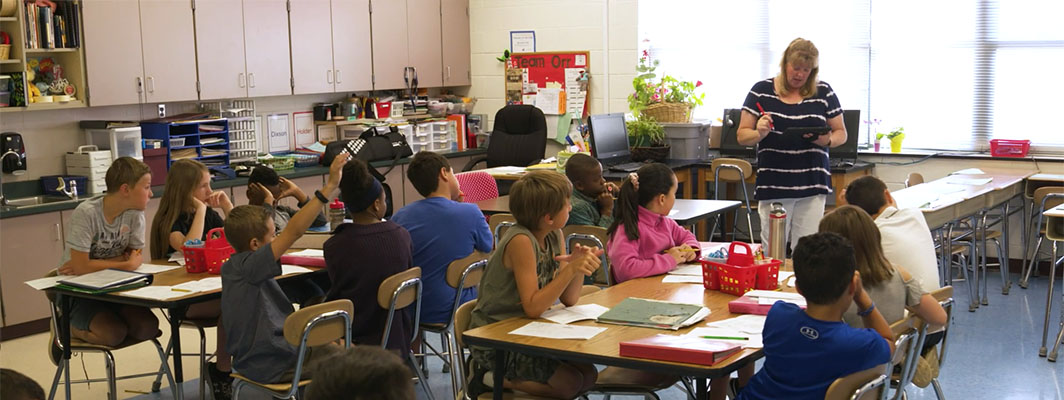
August 22, 2019 | By Wendy Xiao
Orr spent a semester digging into the research behind how learners vary and tried several strategies tied to self-regulation, a key learner variability concept, to support two of her students. She demonstrated her understanding and use of strategies such as mindfulness breaks by collecting artifacts that showed how her students benefited from these changes in practice.
Orr said one of her biggest takeaways from the micro-credentials process was the importance of leveraging students’ strengths, which she did not do initially. “Having them write was not their strength,” she explained. “Both of the students are very verbal, and so I got audio recordings of them reflecting. I got so much more from them when I didn’t ask them to write.”
Because a diverse student population brings varied experiences and abilities to the classroom, teachers must understand each child’s strengths and challenges in order to create a learning environment where each student can thrive. Micro-credentials, a natural extension of the formal and informal learning activities educators engage in every day, provide teachers with personalized, competency-based recognition for the skills they learn throughout their careers.
The Friday Institute for Educational Innovation produced a stack of 15 Learner Variability micro-credentials—including the Self-Regulation micro-credential—in collaboration with Digital Promise Global’s Learner Variability Project. These micro-credentials are steeped in learning sciences research, providing insights into how best to support and engage the full diversity of learners found in every classroom.
After earning her Self-Regulation micro-credential, Orr reflected that her “relationship with [her students] is much stronger now than it was at the beginning of the year.” She added: “They started to see that I was working to understand them better and that they were important to me, important enough to learn something new to try to help them, and I think that really changed things.”
Watch the video below to see Bethany Orr’s micro-credential journey and how the process pushed her to better understand her students; then, start your own micro-credential journey by visiting the Digital Promise Micro-credentials Platform.